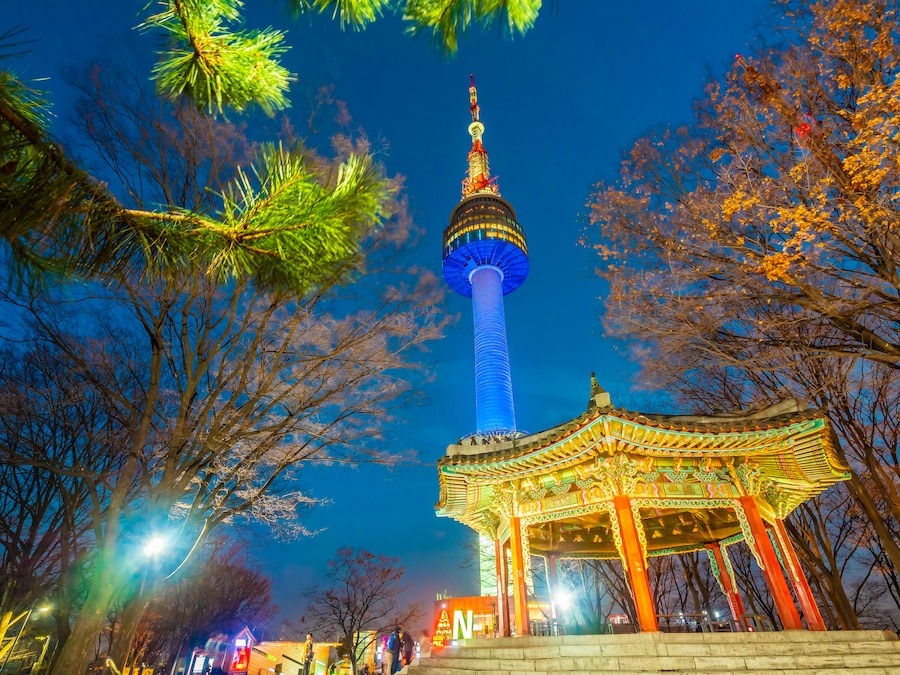1. Overview of the South Korean Education System
South Korea has quickly become one of the leading educational hubs in Asia, known for its innovative technology, academic rigor, and cultural influence. The country is home to several prestigious universities, including Seoul National University (SNU), KAIST, and Yonsei University, which are globally recognized for their academic excellence, particularly in fields like engineering, science, and business.
South Korea’s education system is highly competitive and research-focused, offering top-tier programs in both undergraduate and postgraduate studies. International students are increasingly drawn to South Korea not only for its academic reputation but also for its rich cultural experiences and growing international community.
2. Why Study in South Korea?
- World-Class Universities: South Korea is home to several universities that rank among the top 100 globally, offering high-quality education and research opportunities.
- Innovation and Technology: As a global leader in technology, South Korea offers students access to cutting-edge research facilities, particularly in fields like engineering, IT, and biotechnology.
- Vibrant Cultural Scene: South Korea’s dynamic cultural offerings, including K-pop, K-drama, and traditional heritage, make it an exciting destination for international students.
- Affordability: Tuition fees in South Korea are relatively affordable compared to other top study destinations like the US or UK.
- Post-Study Work Opportunities: South Korea has a growing demand for international talent, particularly in technology and business sectors, providing students with favorable career prospects after graduation.
3. Top South Korean Universities and Popular Programs
South Korea is known for its high concentration of top-ranking universities, including:
- Seoul National University (SNU): South Korea’s premier institution, offering a wide range of programs in engineering, humanities, and natural sciences.
- Korea Advanced Institute of Science and Technology (KAIST): A leader in engineering and technology, renowned for its research in robotics, artificial intelligence, and materials science.
- Yonsei University: One of the oldest and most prestigious private universities in South Korea, known for its business, economics, and international studies programs.
- Korea University: Famous for law, business, and humanities programs, with strong ties to South Korea’s corporate world.
Popular fields of study in South Korea include:
- Engineering and Technology: South Korean universities are world leaders in mechanical, electrical, and chemical engineering.
- Information Technology (IT): South Korea’s thriving tech industry makes it an ideal destination for students studying computer science, software engineering, and AI.
- Business and Economics: South Korea’s business schools offer strong programs in international business, finance, and management, with close connections to multinational companies.
- Korean Language and Culture: South Korea is an excellent place to study Korean language, history, and culture, with many universities offering specialized programs for international students.
4. Admission Process for South Korean Universities
Applying to South Korean universities typically involves:
- Application Portal: Many universities require international students to apply through their specific online portals.
- Korean or English Proficiency: Programs taught in Korean require students to pass the Test of Proficiency in Korean (TOPIK), while English-taught programs may require TOEFL or IELTS.
- Application Documents: Students need to submit their academic transcripts, letters of recommendation, a personal statement, and sometimes a portfolio (for arts or design programs).
- Entrance Exams: Some programs, particularly in fields like medicine and engineering, may require students to pass entrance exams.
5. Scholarships and Financial Aid
South Korea offers a wide variety of scholarships to international students, including:
- Korean Government Scholarship Program (KGSP): The most prestigious scholarship for international students, covering tuition, living expenses, airfare, and a monthly stipend.
- University-Specific Scholarships: Many South Korean universities offer merit-based and need-based scholarships to international students.
- Global Korea Scholarship (GKS): Offered by the South Korean government, this scholarship supports undergraduate and graduate students with full or partial funding.
- Corporate Scholarships: Many large South Korean companies, like Samsung and LG, offer scholarships for international students pursuing studies related to technology, business, and engineering.
6. Cost of Living and Tuition Fees
- Tuition Fees: Tuition in South Korea varies by university and program but is generally between KRW 4 million to KRW 10 million (approximately USD 3,500–8,500) per year for undergraduate programs. Tuition for postgraduate programs may be slightly higher, especially in specialized fields like medicine or engineering.
- Cost of Living: The cost of living in South Korea, particularly in Seoul, can be high, but it is still relatively affordable compared to other major cities like Tokyo or New York. Average living expenses, including accommodation, food, and transportation, are around KRW 900,000 to KRW 1,500,000 (USD 700–1,300) per month.
7. Student Visa Requirements
To study in South Korea, international students need a D-2 Student Visa:
- University Admission: Students must have a confirmed offer of admission from a recognized South Korean institution.
- Proof of Funds: Students are required to demonstrate that they have sufficient funds to cover tuition and living expenses (at least KRW 10 million, or approximately USD 8,400, per year).
- Medical Insurance: Health insurance is mandatory for all international students.
- Visa Application: Students can apply for the D-2 visa at the nearest South Korean consulate or embassy, providing necessary documents like the admission letter, proof of funds, and passport.
8. Life as an International Student in South Korea
South Korea offers an exciting and fast-paced lifestyle for international students. Seoul, the capital, is a vibrant metropolis with a unique blend of traditional palaces and temples alongside ultra-modern skyscrapers. South Korea also offers a variety of cultural experiences, from the buzzing nightlife of Hongdae and Gangnam to traditional festivals and tea ceremonies.
Students can explore K-pop concerts, K-drama film sets, and South Korea’s rich food scene, which includes everything from street food stalls to high-end restaurants. Additionally, South Korea’s efficient public transportation system makes it easy to travel across the country and explore its natural beauty, including the stunning Jeju Island, Seoraksan National Park, and ancient Gyeongju temples.
9. Career Prospects After Graduation
South Korea is one of the most technologically advanced countries in the world, with many multinational corporations like Samsung, LG, and Hyundai headquartered there. As such, the country offers numerous job opportunities for graduates, especially in fields like IT, engineering, business, and design.
The D-10 Job-Seeking Visa allows international students to stay in South Korea for up to six months after graduation to search for employment. Many international students also find opportunities in South Korea’s expanding English language education sector or secure jobs in multinational corporations operating within the country.

